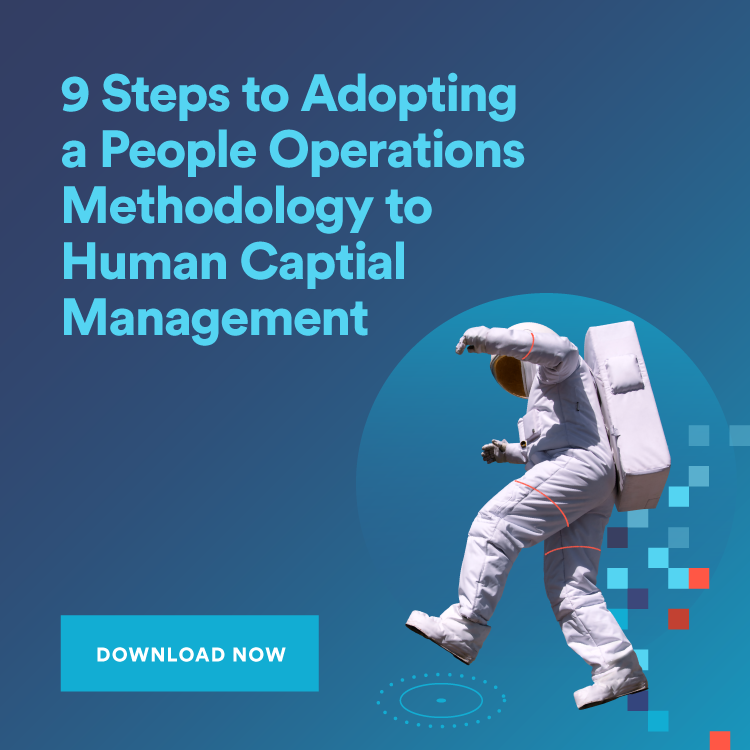Employee relations is a fundamental issue for a company. Discover why it is essential to assess potential managers for people management skills.
People management is one of the key principles of a successful business, and even good managers can improve. Want to know how to improve employee relations? Here is a look at some key best practices for people management that can be implemented right away.
The 3 necessary skills of a people manager
According to social psychologist Robert Katz, great managers have the same qualities: interpersonal skills, technical skills, and conceptual skills.
Interpersonal skills are arguably the most important. Employee relationship management shouldn’t primarily be left up to the human resources department. Managers must be able to foster a sense of community and company culture. After all, successful teams produce the biggest results and maintain higher employee satisfaction and employee retention.
Managers need proficient technical knowledge of their roles to foster the education and growth of their employees. Good managers should act as a professional mentor to their direct reports and this requires expertise in their field.
People management ability means nothing if a manager cracks under pressure. Managers need keen conceptual awareness to think on their feet and find creative solutions to unforeseen problems.
Though soft skills are critical, they’re not the be-all and end-all of good people management and organizational performance. Managers can’t excel in their roles unless they’re comfortable with the technical demands. Proficiency with any important technology and software is non-negotiable, especially when it comes to people operations.
People Ops
People operations or “people ops” are business functions that support productivity and employee engagement. It is thought to be a part of human resources in some quarters, others think of it as an entirely new part of business operations.
People Ops puts the employee first by automating as many standard human resources functions as possible. This frees up personnel from chores like data entry, processing, and reporting so they can focus on designing great employee experiences. Good people managers can bolster their soft skills and harness software to capture, analyze, and build on data-driven insights about the company and its workforce. This is critical for making the company run smoothly with an employee-centric frame of mind.
How do I improve employee relations at my company?
Feel like your company’s people management could use a boost? Make a list of the managerial skills that are the most vital to the company’s success. Be as specific as you can. Which do you feel are lacking? Remember to start small — narrow down the list to 3-5 traits.
Once you’ve honed in on the most important skills, decide how you’d like to measure your managers’ success. Will you gauge their teams’ overall performance? Will you send out employee surveys to measure behavioral traits and employee engagement? The system you choose is up to you. Establish a baseline and track progress over time. Improving people management is a marathon, not a sprint.
Feel like your company’s people management could use a boost? Make a list of the managerial skills that are the most vital to the company’s success.
How do I look for good people management skills?
It’s tough to gauge people management skills in a controlled environment. You won’t be able to see them in action, but asking the right questions will give you the best possible insight into a candidate’s employee relations strategy.
Anyone can succeed when things are going smoothly — only great managers succeed when things get rough. Ask the candidate how they’d handle ambiguous, uncomfortable situations that are part of the employee experience. These include things like disciplining underperforming employees, mediating interpersonal conflict, and addressing employee-related matters. Essentially, you’re seeing how effectively they would function as an employee relations manager. If they provide strong, thorough answers, there is a good chance that they’ll handle these situations well.
How do I address a manager who has behaved inappropriately?
When it comes to breaches in company policies, don’t let things simmer. Waiting to solve the problem sends a message that it isn’t important. Instead, address the situation with honest communication as soon as it’s brought to your attention. Meet with your manager in person and explain what behaviors he or she is exhibiting that must be changed. Ensure they know that it won’t be tolerated and clearly state the consequences if they act that way again. Depending on the severity of the situation, you may need to take formal disciplinary action.
After explaining the situation, give your manager the floor. Give them the opportunity to explain their side and tell their story. The key is an open dialogue.Factors that you are not aware of might have created a misunderstanding. You can’t handle the problem properly until you communicate openly and evaluate all sides.
How do I address poor employee relations?
What If employees have complained about another employee’s inappropriate behavior? Leave it to your manager. The best way for them to develop people management skills is by putting them to the test. Take a back seat and let your manager decide how to proceed. Keep an eye on things and don’t intervene unless absolutely necessary. Step in if the problem isn’t successfully resolved, especially for serious offenses, such as sexual or verbal harassment. For employee misconduct that involves serious offenses, such as sexual or verbal harassment, involve the HR department promptly.
Navigating employee relations as a manager
Being a manager is a juggling act that takes practice along with interpersonal, conceptual, and technical skills. Your working environment is likely filled with employees with all different backgrounds, skill sets, and work ethics. When it comes to maintaining positive employee relations between managers and staff, keep the lines of communication open and approach situations with an open mind.







